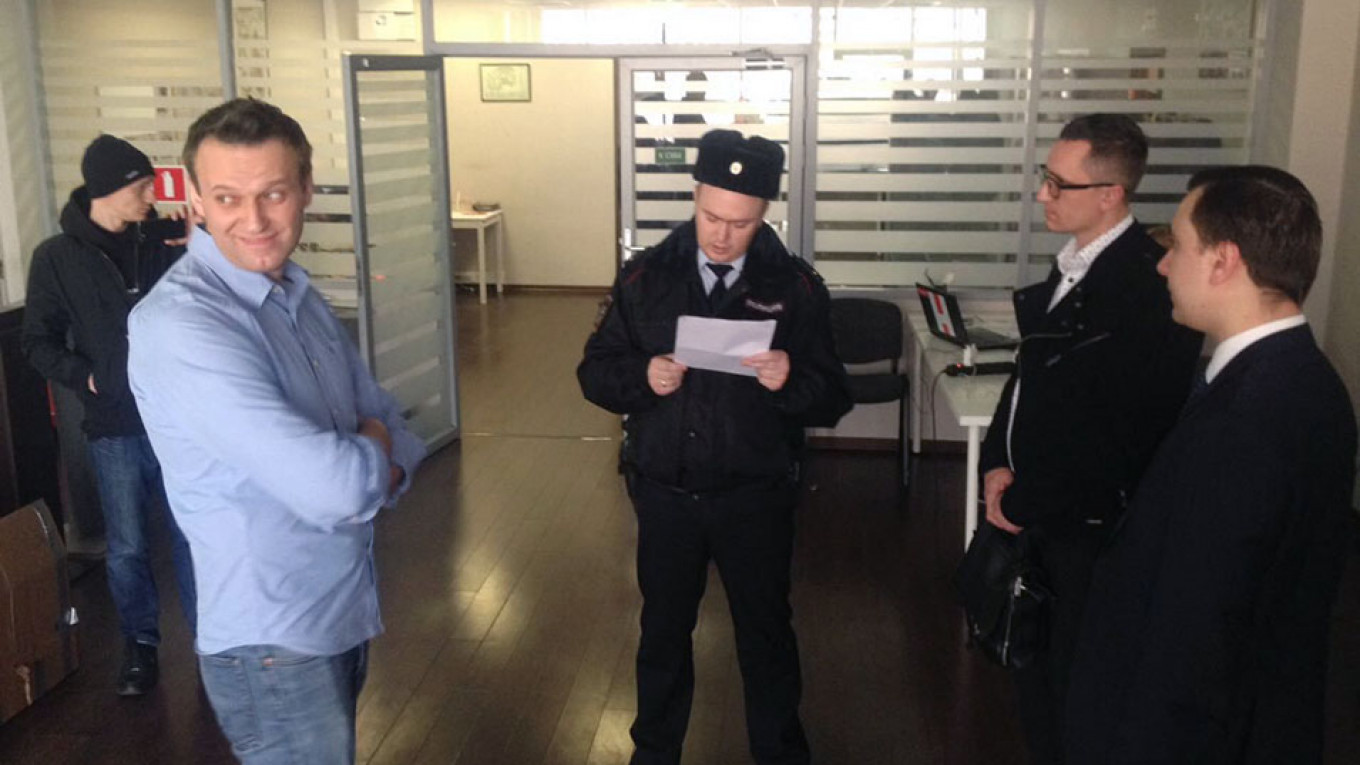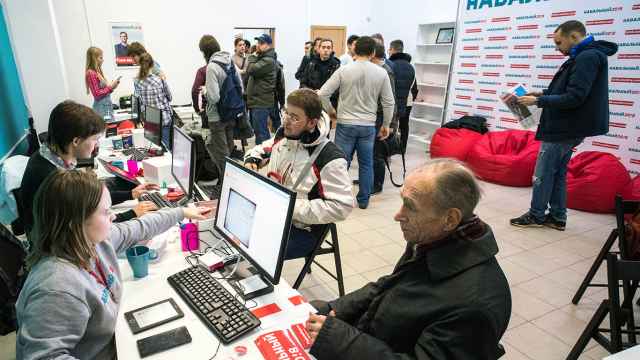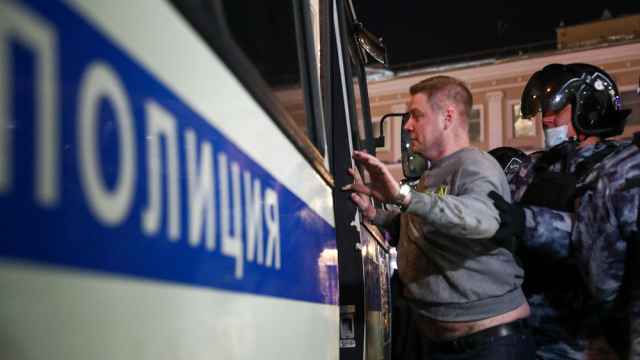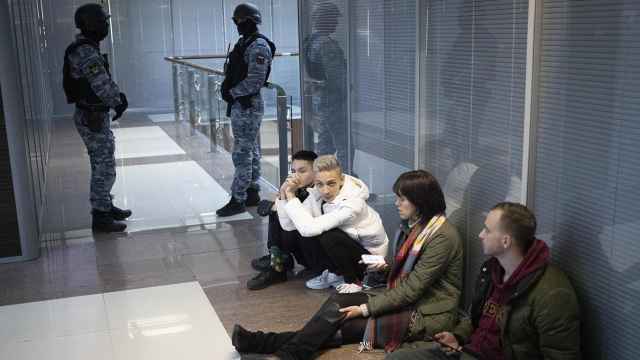I was actually planning to write a column on something else today, but early on Tuesday morning investigative officers came, searched my apartment and confiscated my computer (with an almost-finished article on it) as part of the countrywide raids on Alexei Navalny’s Anti-Corruption Foundation (FBK).
I hope my computer will be returned at some point, but this isn’t just about me: It’s about what our country has turned into and what its law enforcement bodies are up to.
That last question is particularly pertinent right now, because on Tuesday in Yekaterinburg, the body of Ksenia Katorgina, a woman that had arranged to meet and sell her car, was found after a search lasting several days. It was determined that she was killed by members of a criminal gang.
News about murders and other shocking events comes in almost every day.
However, while this is all going on, hundreds of officers with salaries, bonuses and state-funded apartments are carrying out ridiculous work: on orders from the very top, they are searching the apartments of ordinary people, going through their personal belongings, photographs, rifling through documents, confiscating computers and other electronics, and then carrying out lengthy interrogations that can last hours.
It’s entirely understandable why security officials don’t like it when their activities are discussed: their work is absolutely nonsensical. They are sent on a pointless search for evidence to confirm conspiracy theories thought up by their superiors. And something we should not forget: they are doing all this on our money, using the time and facilities that should, in theory, be put toward ensuring public safety.
When they tried to plant drugs on the investigative journalist Ivan Golunov and arrest him, it was a clear and apparent sign. And society reacted so strongly to it that a lot of people suddenly realized with horror: This could actually happen to anyone!
Of course, as a journalist, Golunov might really annoy influential people with his investigations, but this tactic of planting drugs, which had clearly been used on untold numbers of unknown victims, is not solely employed to take revenge on journalists; it is a common strategy used by our law enforcement agencies.
The Pavel Ustinov case scared even the most apolitical of people, those under no threat of investigation or involved in any protests: as it turns out, you don’t even need to be doing or taking part in anything — you just have find yourself at the wrong place at the wrong time and that’s it: You’re fair game to be beaten, detained and sentenced.
The Navalny case is still seen by many as an occurrence in some kind of different realm — it still only applies to Navalny and his fellow activists, and they knew what they were getting themselves into.
Anyone who thinks that is mistaken. The FBK crackdown goes along the same lines as the arrests of Ustinov and Golunov: Anyone that is somehow suspected of being involved in Navalny’s organization is immediately considered a target.
For example, I’ve never worked there and held the same stance toward their work as do thousands of other Russians: I gave them my moral support.
However, they came to my flat because my ex-wife actually worked in Navalny’s regional headquarters for a time — and this was after our divorce.
As it turns out, in Russia in 2019 this is already enough to be considered a witness, be subject to a search, be interrogated and even sign a nondisclosure agreement.
I would like to ask our chief prosecutor Alexander Bastrykin and all the others involved in this disgrace: What have you actually been looking for with so much time and effort?
After all, nothing was found in the last wave of searches that could be called evidence even in your wildest dreams.
What did you want to find specifically at my place and why did you need my computer? On what basis can a Russian citizen be declared a witness in a case regarding the activities of organizations that they have never been a member of, have never worked for, and have no connection with whatsoever?
My questions are rhetorical. The answers are becoming increasingly clear with each and every day: Russia has finally turned into a police state where any citizen can be stripped of their rights at the discretion of a uniformed officer.
This might not sound original or new, but the time has come to speak up wherever possible and on all platforms: Unless every single one of us rises up to fight the abuse of power by the special services and we jointly step up to stop it, then sooner or later everyone will have the chance to enjoy the dubious pleasure of an early-morning raid.
This article was originally posted by Vedomosti.
A Message from The Moscow Times:
Dear readers,
We are facing unprecedented challenges. Russia's Prosecutor General's Office has designated The Moscow Times as an "undesirable" organization, criminalizing our work and putting our staff at risk of prosecution. This follows our earlier unjust labeling as a "foreign agent."
These actions are direct attempts to silence independent journalism in Russia. The authorities claim our work "discredits the decisions of the Russian leadership." We see things differently: we strive to provide accurate, unbiased reporting on Russia.
We, the journalists of The Moscow Times, refuse to be silenced. But to continue our work, we need your help.
Your support, no matter how small, makes a world of difference. If you can, please support us monthly starting from just $2. It's quick to set up, and every contribution makes a significant impact.
By supporting The Moscow Times, you're defending open, independent journalism in the face of repression. Thank you for standing with us.
Remind me later.








